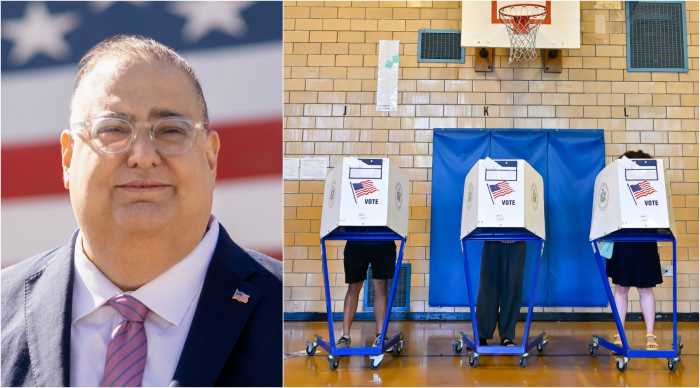By Candida L. Figueroa
Volume 21, Number 39 | The Newspaper of Lower Manhattan | February 6 – 12, 2009
Gates helps B.M.C.C. study effects of scholarship incentives
The Borough of Manhattan Community College has been awarded $1.4 million as part of the city-wide effort to increase performance and graduation rates among low-income students. Their participation in a scholarship study, has led to one of the highest donations the school has ever received.
The performance-based scholarship will determine whether additional financial aid impacts a students’ academic progress. Participants could receive up to $1,300 per semester for two semesters based on their academic progress. Funding was provided by MDRC, a non-profit research group, through the Bill and Melinda Gates Foundation with sponsorship from the Robin Hood Foundation.
Evaluation reports on their grade point average, credit accumulation, and grade consistency determine whether MDRC will renew them for their second semester. College officials did not say what the grade standards required for renewal would be. Additional reports over the next seven years, will detail whether students were able to stay at a high level without the scholarship incentive.
A total of 368 students have already been randomly selected for the study and over 700 more are expected to participate through the spring of 2010. The students applied online and they had to be between 22 and 35, enrolled in at least six credits, not living with parents, and eligible for the federal Pell Grant in order to be eligible. Those selected are being compared to a group of students not receiving additional financial aid.
B.M.C.C. is the largest CUNY community college with more than 22,000 students filling its hallways. Of those students, 85% receive financial aid or some form of government assistance. “Our students are the neediest,” said school president, Antonio Perez. “We are providing a scholarship to students and removing the constraints of the economic barrier, which is why many students prematurely leave an institution.”
For the past two years, the diverse college has been involved in a similar program, the Accelerated Study in Associate Programs, ASAP, which also tracks students performance while providing a larger array of incentives. Full-time students enrolled in the program receive free tuition, books, MetroCards, meet twice a month with a counselor and get first pick on classes according to a recent article in the New York Times. Results from the program offered at CUNY’s community colleges show that students enrolled in ASAP outscore students not in the program. Since it began, enrolled students have accumulated more credits and received a higher grade point average.
“We want to know if there is an incentive basis for improved success in the schools,” Howard Entin, director of financial aid, said in a telephone interview. “The concept of reward for performance is being applied here and we are the model to see whether the additional assistance makes a difference.”
The scholarship study was first tested during 2005 in New Orleans but continuing efforts were stalled by Hurricane Katrina. Despite the unexpected tragedy, the public schools were able to report positive results.
“The group that benefited were the recipient of the scholarships; who got a higher grade point average and got more credits,” said Entin. “We are hopeful to see results like in Louisiana if not better. We know that students are generally under funded so we believe we can eliminate financial obstacles.”
The Gates Foundation will donate a total of $69 million to higher education programming in hopes of doubling the number of low-income students who graduate. Participants of the scholarship study also include students from Hostos Community College in the Bronx as well as community and senior colleges in Ohio, New Mexico and California.

































